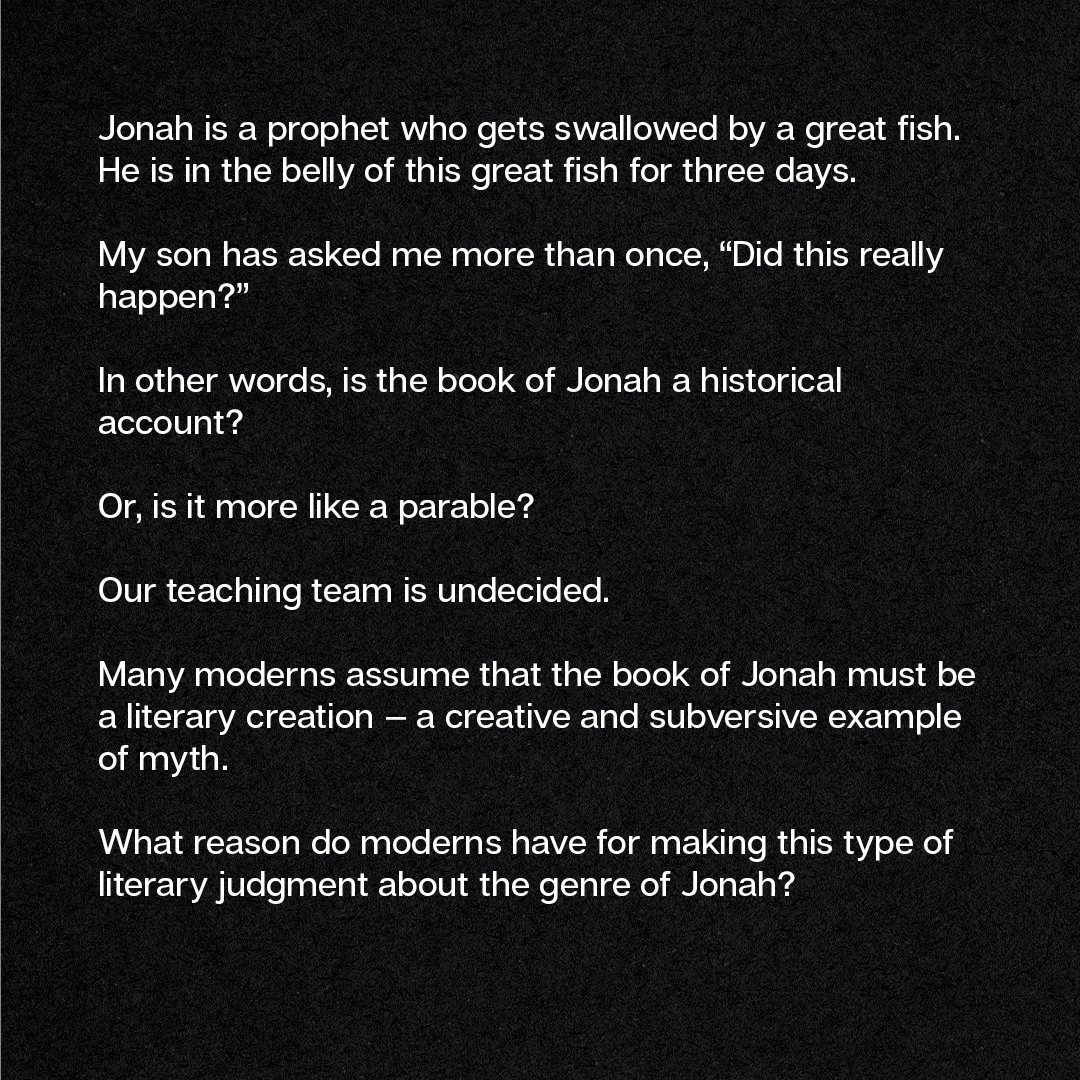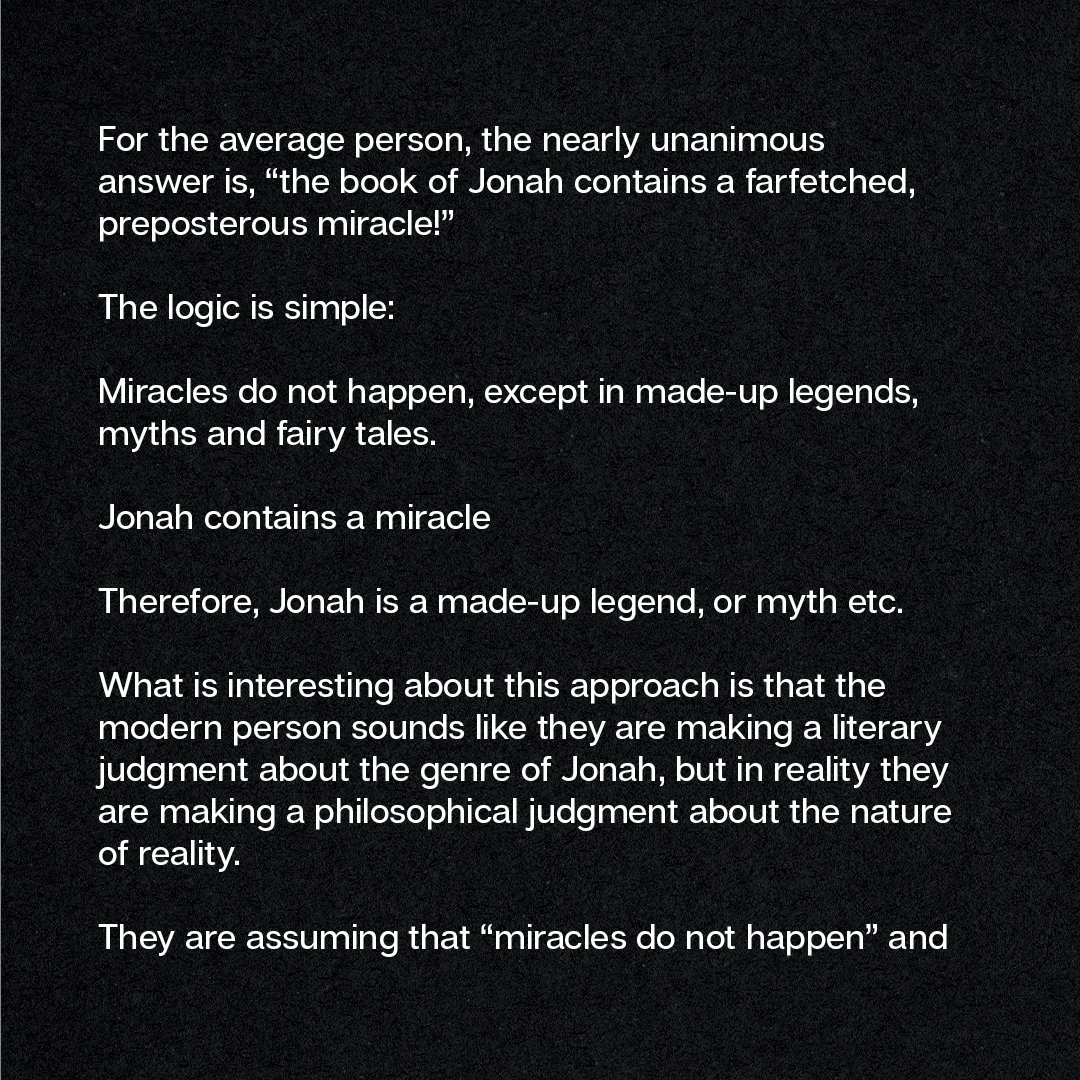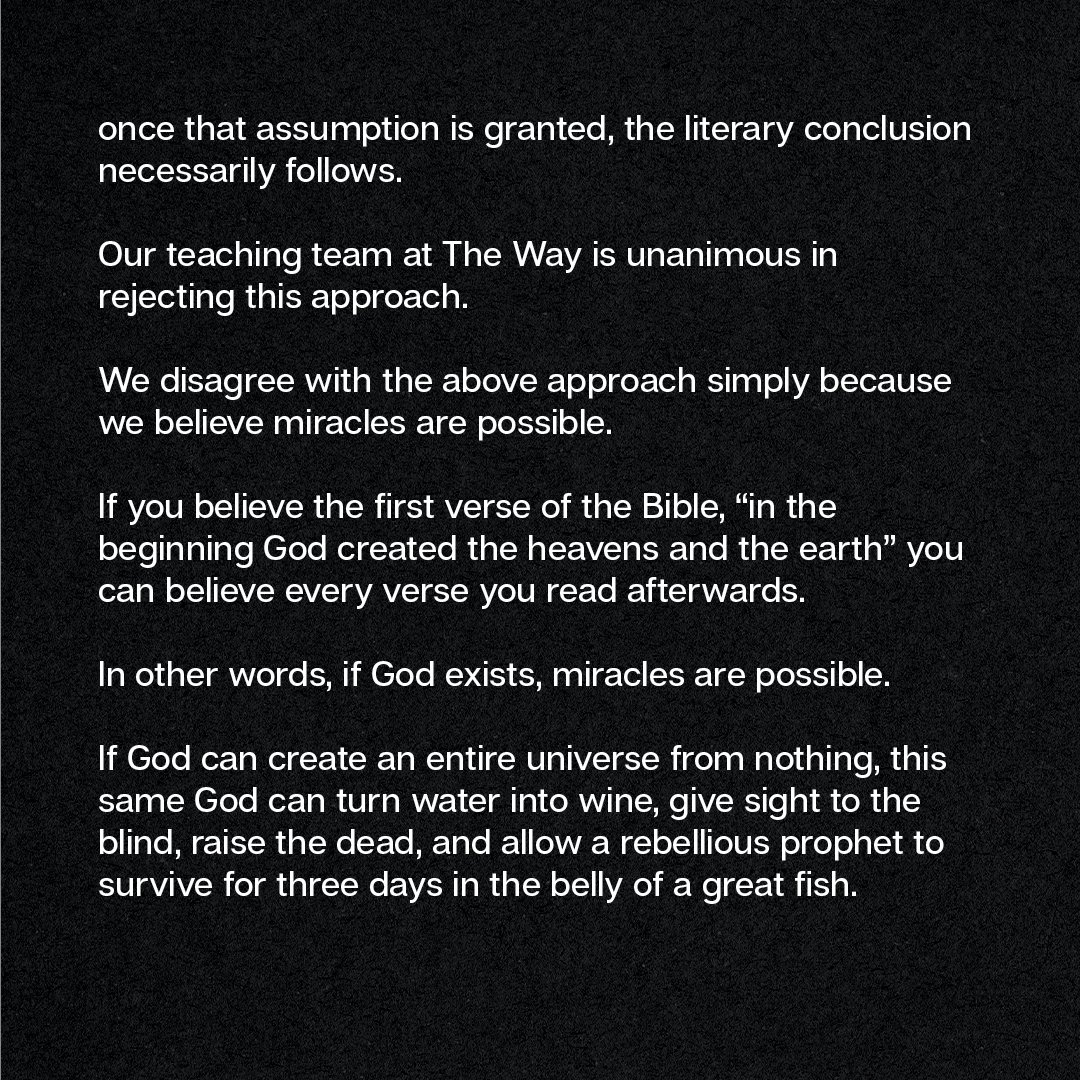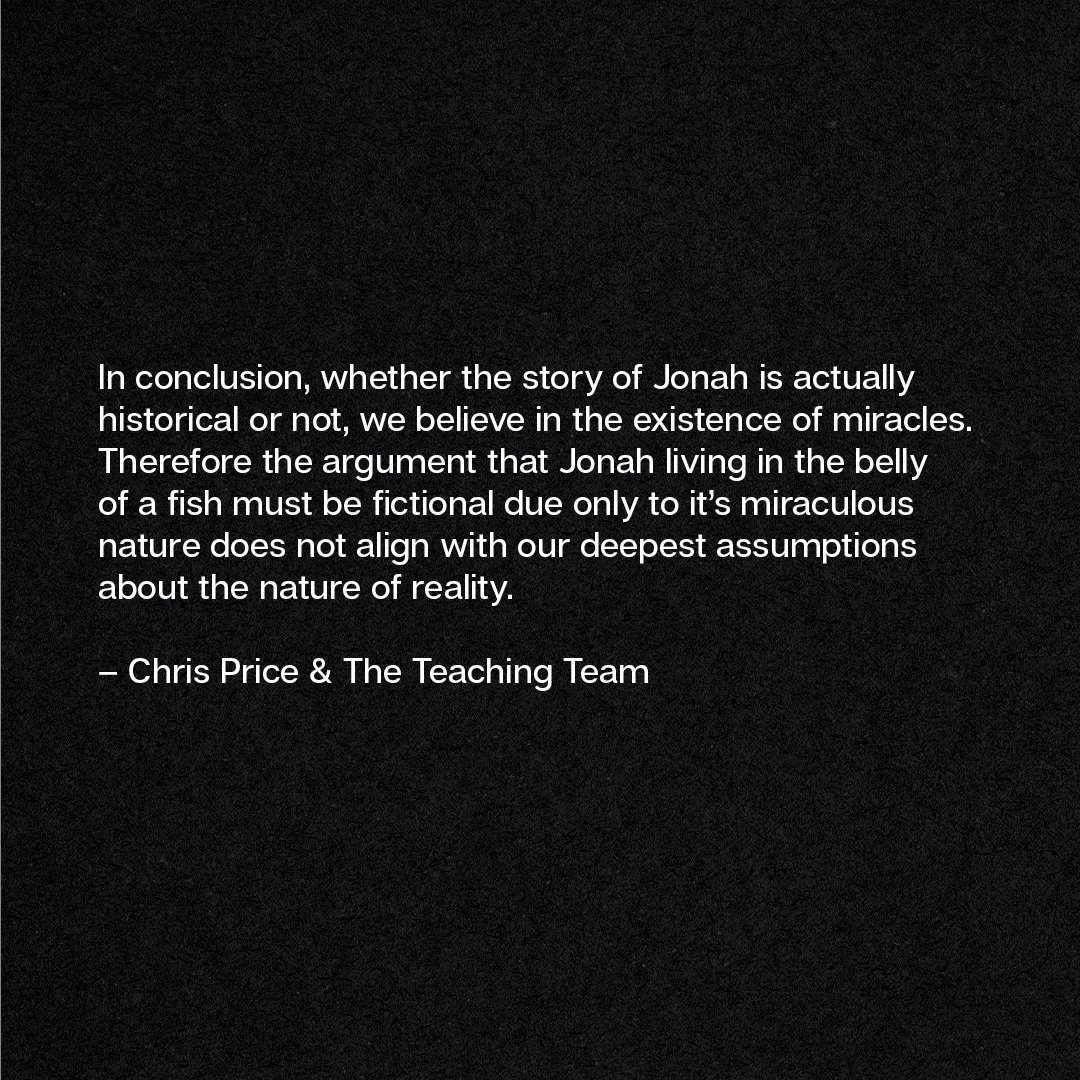Did Jonah really get swallowed by a fish?
Jonah is a prophet who gets swallowed by a great fish. He is in the belly of this great fish for three days.
My son has asked me more than once, “Did this really happen?”
In other words, is the book of Jonah a historical account?
Or, is it more like a parable?
Our teaching team is undecided.
Many moderns assume that the book of Jonah must be a literary creation — a creative and subversive example of myth.
What reason do moderns have for making this type of literary judgment about the genre of Jonah?
For the average person, the nearly unanimous answer is, “the book of Jonah contains a farfetched, preposterous miracle!”
The logic is simple:
Miracles do not happen, except in made-up legends, myths and fairy tales.
Jonah contains a miracle
Therefore, Jonah is a made-up legend, or myth etc.
What is interesting about this approach is that the modern person sounds like they are making a literary judgment about the genre of Jonah, but in reality they are making a philosophical judgment about the nature of reality.
They are assuming that “miracles do not happen” and once that assumption is granted, the literary conclusion necessarily follows.
Our teaching team at The Way is unanimous in rejecting this approach. We disagree with the above approach simply because we believe miracles are possible.
If you believe the first verse of the Bible, “in the beginning God created the heavens and the earth” you can believe every verse you read afterwards.
In other words, if God exists, miracles are possible.
If God can create an entire universe from nothing, this same God can turn water into wine, give sight to the blind, raise the dead, and allow a rebellious prophet to survive for three days in the belly of a great fish.
To suggest otherwise would be akin to telling an author that she can write a whole book, but is unable to move a comma in the manuscript.
Not only has our team read and heard about miracles from reliable sources, some of us have experienced miracles — miracles that are familiar to those we read about in the New Testament.
History is littered with miracles.
At the centre of human history is a miracle bigger than Jonah in the belly of a fish.
Because at the centre of human history is the resurrected Jesus getting out of a grave as the first great act of new creation. And apart from the bodily resurrection of Jesus our “faith is futile and we are still in our sins.”
In conclusion, whether the story of Jonah is actually historical or not, we believe in the existence of miracles. Therefore the argument that Jonah living in the belly of a fish must be fictional due only to its miraculous nature does not align with the fact that miracles are present throughout scripture.







